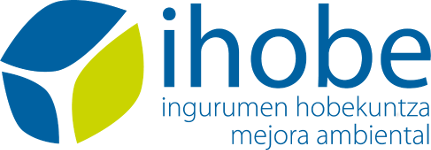RECICHAIR
ECO-DESIGN OF FURNITURE BY ROTOMOLDING
As a result of the Covid-19 pandemic, the need to have an own product in the medical sector has been detected, and the Basque Country has the means and structures to make this possible through its industry. This would enable supply chain disruptions to be avoided and provide strategic know-how in a key sector.
The transfer chair for patients and people with mobility problems is an element that is rapidly being incorporated in different areas, thanks to increased awareness and the social integration of patients and people with reduced capacities. The pandemic revealed the importance of good disinfection of products to prevent infections in hospitals. This involves the production of lightweight products that can be disinfected with cleaning agents.
ROTOBASQUE is the only company with rotomolding technology in the Basque Country. RECICHAIR has relied on the collaboration of CTME (Miranda de Ebro Technological Centre) for the Life Cycle Analysis (LCA).
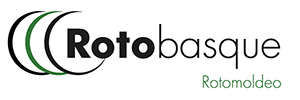
DRIVING FACTOR
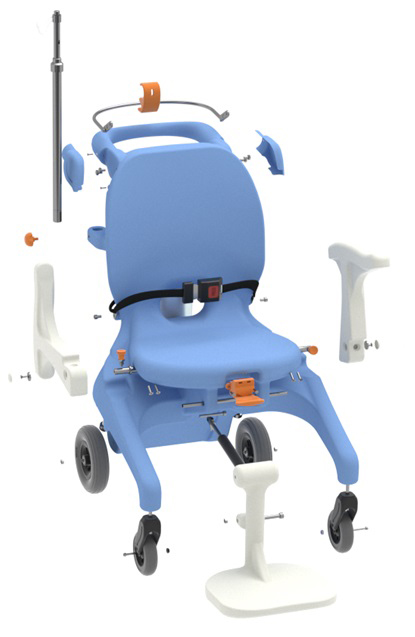
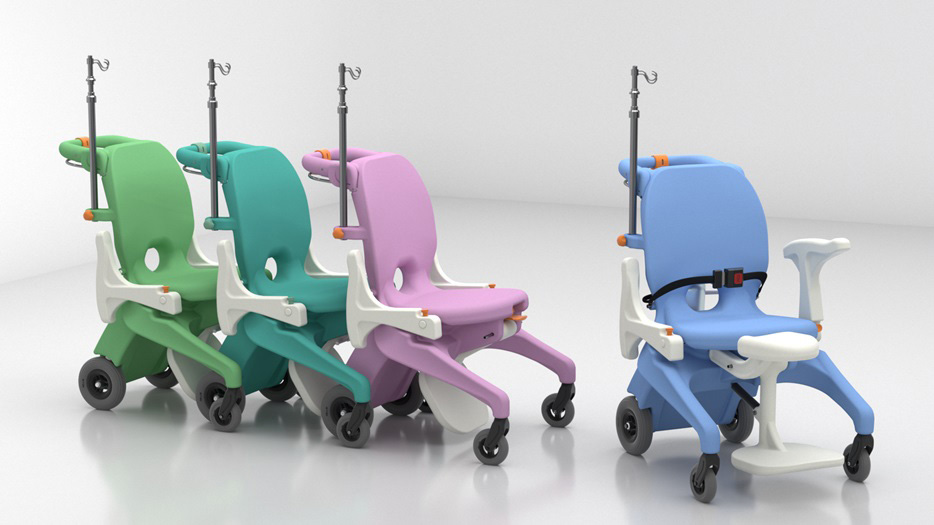
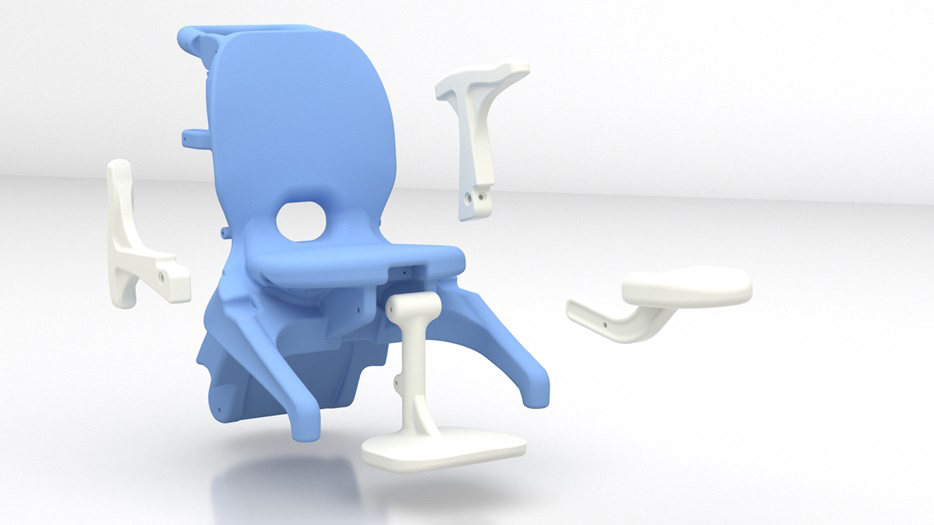
 OBJECTIVES
OBJECTIVES
- Develop an eco-designed mobility chair that can be manufactured using rotomolding technology, which is more environmentally friendly than conventional devices, easier to clean, suitable for radiotherapy rooms and much lighter.
- Incorporate recovered materials in the manufacturing process.
- Introduce eco-design concepts into the device while maintaining a robust design and high durability.
- Prepare an LCA of the new chair for the quantitative assessment of the environmental impact of the developments.
 RESULTS
RESULTS
- Verification of the technical, environmental, economic and commercial feasibility of the project, subject to the establishment of alliances with strategic agents and investment partners.
- Identification of the main environmental impact factors through an LCA of the mobility chair.
- Obtain a strategy for the tracking, monitoring and separation of industrial plastic waste for its reincorporation into production cycles.
- Own product designed with internal resources for the implementation of new business models and work methodologies.
- New relationships with public bodies and private entities for the development of new projects in the health sector.
- Start of the process for the implementation of the ISO 14006 certification within the development company.
 CONCLUSIONS
CONCLUSIONS
- It has been proven that the company has the technical capacity to develop in-house projects of high technical complexity.
- It has been established that it is possible to recover plastic waste and systematise its separation and treatment in order to include it in the value chain in a circular economy strategy aimed at obtaining zero waste.
- New technology partners and developers are required to bring the product to market as it is a highly complex environment which requires certifications and specifications of the products developed. Entry into mature markets that do not always accept disruptive changes in the solutions used is a major barrier.
- New methodologies for monitoring the company's consumption, input and output have been established to improve the environmental monitoring and evaluation of the different activities performed.
ENVIRONMENTAL
TECHNICAL
ECONOMIC
COMMERCIAL
ON THE MARKET
